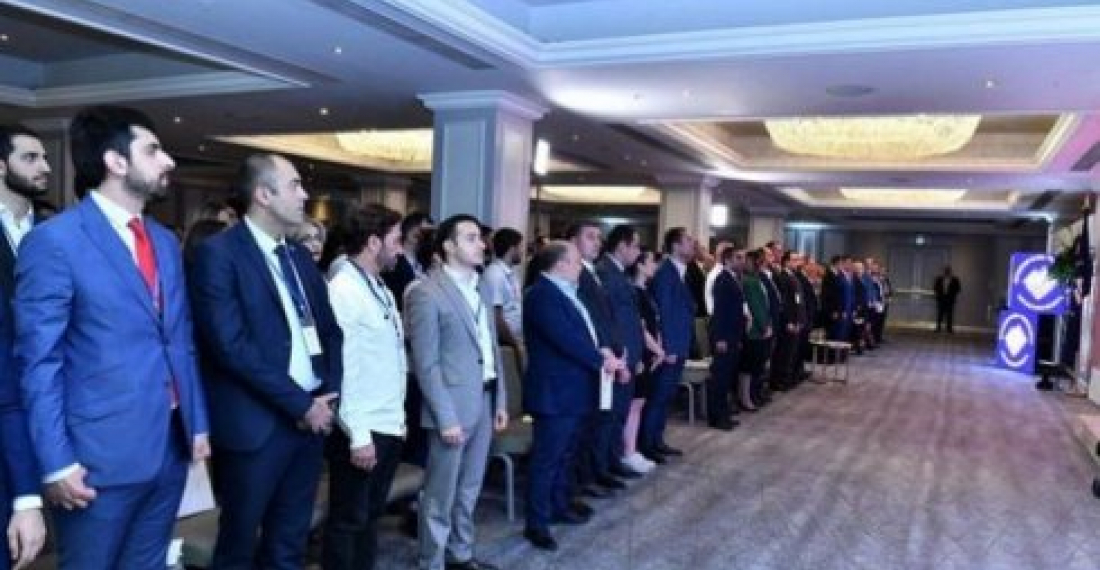Armenia's ruling Civil Contract Party held its 5th congress on Sunday (16 June). More than three hundred delgates attended the meeting which was also addressed by prime minister Nikol Pashinyan. The meeting elected the new Board and Supervisory Committee of the party.
Speaking to participants, prime minister Nikol Pashinyan emphasised that the Civil Contract party was not ideological - it was neither liberal, centrist, nor social democrat but a civic party based on four pillars: statehood, citizenship, national identity and individuality. We are a political party that has rejected "isms" since there are no more rigid ideologies in the modern world, the Prime Minister said.
Pashinyan once again criticised the former ruling circles in Armenia who were now in opposition and were spending a lot of money to circulate fake news against the government. If they continue like this soon they will be impoverished, the prime minister said.
Participants in the congress also elected a 21 member Party board and a 7 person supervisory committee. Among those elected to the Board was prime minister Pashinyan and parliamentary speaker Ararat Mirzoyan, The Board subsequently met and elected Suren Papikyan, the Minister for Territorial Administration as the new party Chairman. Speaking shortly afterwards Papikyan, said that 8000 people had applied to join the Civic Contract party, but the party needs to set up a mechanism to vet them before accepting them as members to ensure that they share the party's political views. He added that Civil Contract does not want to become a mass party.
source: commonspace.eu with agencies.
photo: Delegates at the congress of the Civic Contract partyon 16 June 2019 (picture courtesy of Armenpress, Yerevan)







